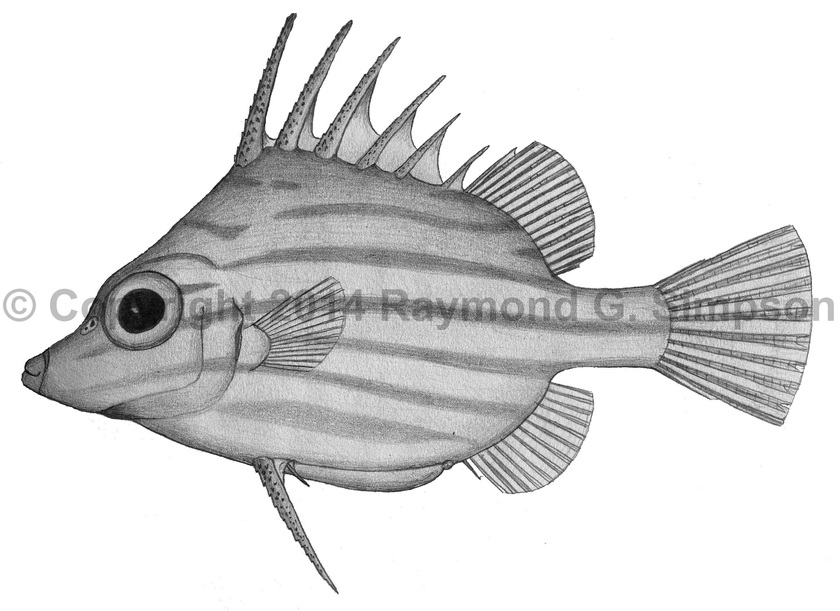
Common Name
Jambeau
Year Described
Longley, 1935
Identification
Dorsal Fin: VI-VII, 15-17
Anal Fin: 15-17
Pectoral Fin: 12-14
Pelvic Fin: I, 1
Gill Rakers: 12-17 (first arch)
Jaw teeth in two rows (4-8/1-5 in upper, 5-9/0-2 in lower jaw). Dorsal fin origin anterior to gill slit. Scales with 4-7 needle-like denticles.
Color
Body pale pink to yellowish, with 6-7 yellow to golden stripes on the side. Dorsal-most stripe broken up into separate dashes and spots. Fins whitish with yellow stripes.
Size
Maximum size to 20cm SL.
Habitat
Found near the bottom from 119-396m.
Range
Continental waters from Virginia to the Yucatan Peninsula.
References
Matsuura, K. 2002. Triacanthidae (pp 1960-1962). In: Carpenter. 2002. The living marine resources of the Western Central Atlantic. Vol. 3: Bony fishes part 2 (Opistognathidae to Molidae), sea turtles and sea mammals. FAO Species Identification Guides for Fisheries Purposes. American Society of Ichthyologists and Herpetologists Special Publication No. 5.
McEachran, J.D. and J.D. Fechhelm. 2005. Fishes of the Gulf of Mexico. Volume 2: Scorpaeniformes to Tetraodontiformes. University of Texas Press, Austin. i-viii +1-1004.
Tyler, J. C. 1966. A new species of triacanthodid Plectognath fish from the Caribbean, Hollardia meadi. Notulae Naturae (Philadelphia) No. 382: 1-8.
Woods, L. P. 1959. Parahollardia schmidti, a new triacanthodid fish from the western Caribbean. Copeia 1959 (no. 3): 222-225.